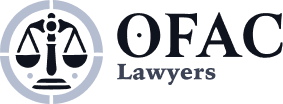
What is the OFAC sanctions list?
The OFAC Sanctions List (Office of Foreign Assets Control) is a tool of foreign policy and national security for the United States of America. It’s used to combat threats from foreign governments, organizations, and individuals whose activities might undermine U.S. interests or global stability. The list includes entities involved in terrorism, illegal drug trafficking, the proliferation of weapons of mass destruction, and other crimes. Let’s explore the role of searching the sanctions list, which countries are under sanctions, and the impact of OFAC sanctions.

What is an OFAC sanctions list search?
The process of searching the OFAC sanctions list is a procedure that helps individuals and organizations identify potential risks of collaborating with partners or counterparties. Being listed can have a significant impact on financial and business operations, so conducting this check is a mandatory step to avoid violating international law and U.S. legislation.
Companies and individuals can use a special database available on the U.S. Treasury Department’s website to search the OFAC sanctions list. This search allows you to ensure that business partners or counterparties are not under sanctions. Regular checks through this search can help avoid violations and penalties, which could also impact your company’s reputation.
Additionally, the search isn’t limited to just internal checks. International companies that do business with American firms also need to conduct similar checks, as failing to comply with sanctions can lead to restrictions on international business, even if the operations take place outside of the U.S.
Which countries are under OFAC sanctions?
OFAC sanctions apply to a wide range of countries and individuals. Examples of such countries include Iran, North Korea, Cuba, Venezuela, and Russia. These countries often face economic and financial restrictions due to their political actions, violations of international agreements, or threats to U.S. national security. However, OFAC sanctions can also target specific sectors of the economy – like energy, finance, or technology.
The OFAC sanctions list is regularly updated and includes both entire countries and specific entities within strategic sectors. For instance, in the case of Iran, the sanctions target the oil sector and financial transactions, while for Russia, restrictions are imposed on technology exports and the provision of credit resources.
The introduction of sectoral sanctions is particularly relevant in the context of global economic integration, where restrictions in one country can have a significant impact on international supply chains and financial markets.
How can you comply with OFAC requirements?
For American companies and citizens, adhering to the OFAC sanctions regime isn’t just a recommendation—it’s a legal obligation. Violating these sanctions can lead to multimillion-dollar fines and criminal prosecution. OFAC sanctions apply to all international transactions and financial operations involving American companies, even if they’re conducted outside the U.S.
To comply with regulations, companies must systematically conduct due diligence on their counterparts and partners by searching the OFAC sanctions list. A comprehensive approach to compliance involves implementing sanction compliance programs, training employees, and developing legal documentation that governs relations with potential sanctioned entities. Violating these requirements can lead to asset freezing, denial of access to American markets, and reputational damage.
Additionally, implementing an internal control program that meets OFAC standards can significantly reduce risks and help companies avoid unintentional violations of sanctions.
What are the steps involved in conducting a comprehensive OFAC sanctions review?
Conducting a comprehensive check for compliance with OFAC sanctions is a multi-step process that requires careful analysis and documentation. The first step involves searching the OFAC sanctions list to identify individuals or companies you’re negotiating with or conducting business operations. This search helps prevent entering into contracts with sanctioned entities and minimizes legal risks.
Next up is checking the source of funds. The OFAC actively monitors financial flows associated with sanctioned countries. Companies need to ensure that their partners are not conducting transactions with illegal income or money linked to sanctioned jurisdictions.
A comprehensive check requires regular updates since the OFAC sanctions list is constantly changing. Companies need to keep up with new OFAC decisions and quickly incorporate changes into their compliance processes.


